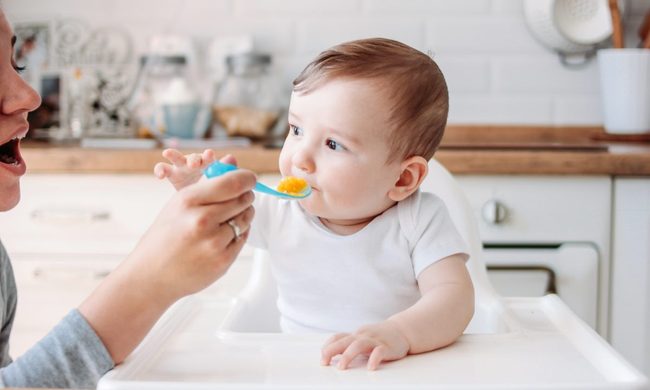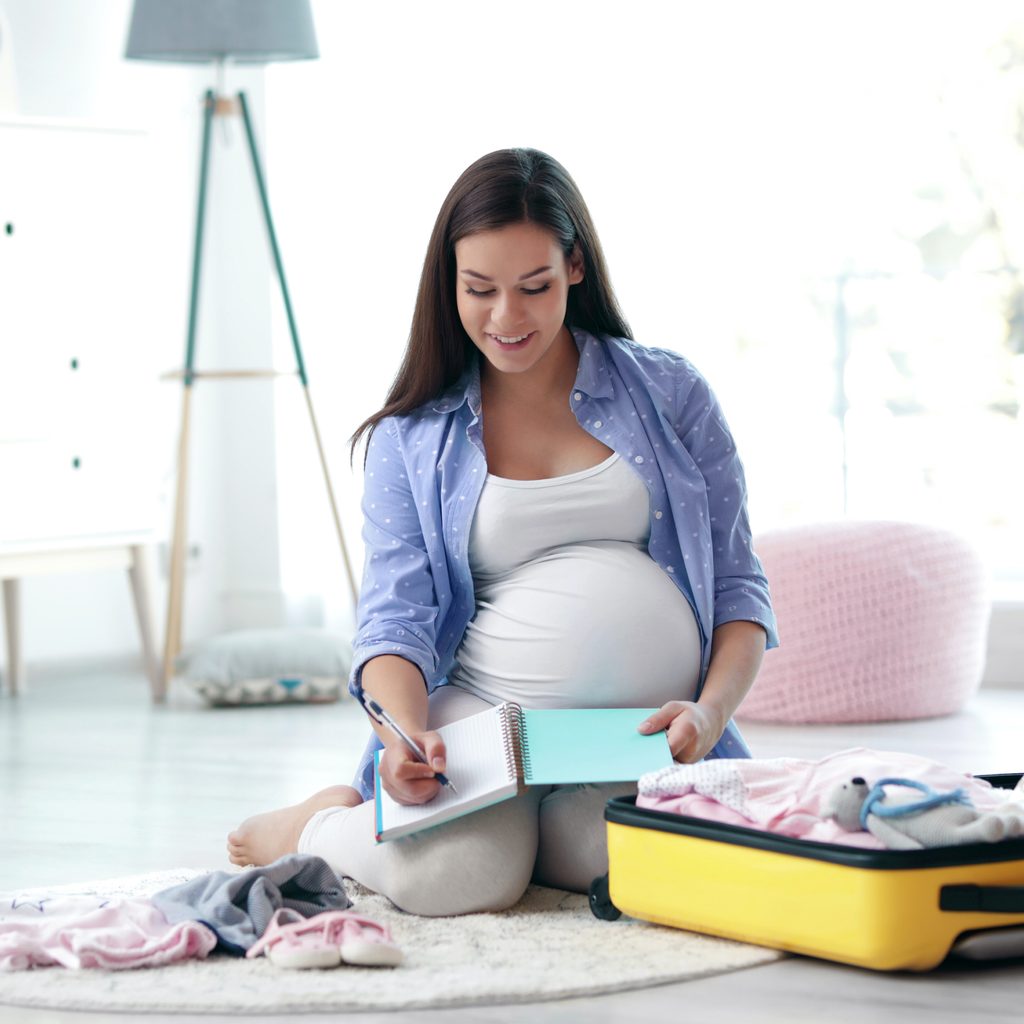
Throughout your pregnancy, you’ve spent a lot of time planning. From organizing the nursery to buying the baby clothes and stocking up on supplies to short-listing baby names — you’ve been busy. Now you’re ready to finally welcome your little one, but first, you need to plan one more thing.
Packing your hospital bag for your labor and delivery stay is as important as planning for your new baby’s arrival, and we’re here to help you with a handy hospital bag checklist, so you won’t forget anything while you make the dash to the hospital.
When to pack the hospital bag
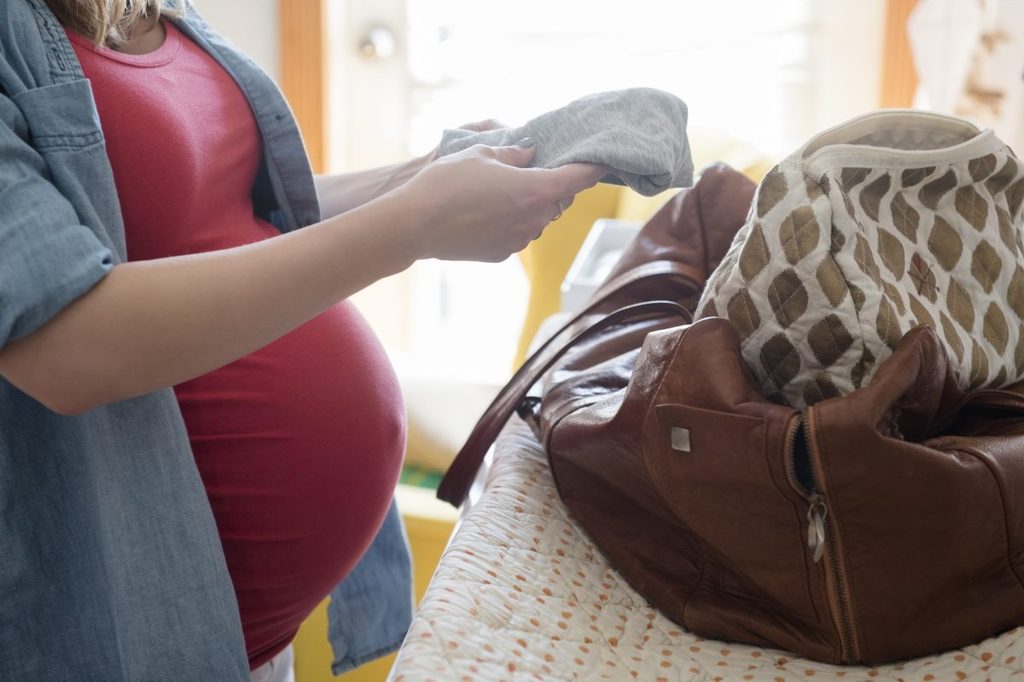
One thing we know about babies is they are unpredictable, and as much as you have planned their arrival around your due date, things change quickly. That means you really don’t want to be waiting until the last minute to pack that hospital bag. Due dates aren’t always accurate, and sometimes babies come earlier than expected, and you could get overwhelmed and tired as you near the end of your pregnancy. You’ll want to have your hospital bag packed and ready to go early in your third trimester.
Where to put the bag
Make sure your partner or any other support person is aware of where your bag is so they could grab it, especially if you aren’t home when you need to go to the hospital. Keep it in a closet or easy-to-grab area. Don’t put it in a place only you would remember because baby brain might kick in and you won’t remember where that was. If you’re working, keeping it in your car would be a good idea. Pop it in the trunk, and then you have it in case you go into labor at work.
What to pack for Mom

Your time in the hospital will hopefully be brief, but you want to ensure you have everything you need. Consider what you’re going to wear to the hospital, during your stay, and when you leave the hospital. Remember, your body will undergo a lot of changes after delivery and comfort will be key.
Choose loose-fitting items without pesky seams that will rub against sore and tender skin. Picking the right underwear is also important, especially if you end up undergoing a cesarean section. You’ll want cotton underwear with a higher waist, so it won’t irritate stitches while accommodating postpartum pads.
Clothing
- Maternity underwear or comfortable underwear you are okay with possibly being ruined quickly
- Nursing bras or other bras that are comfortable and provide support
- Socks, especially slipper socks for slippery hospital floors and/or slippers
- Comfortable loungewear, whether that’s pajamas or joggers, or a robe — you want layers since the hospital’s temperature is an unknown
- Slip-on shoes because you won’t be able to bend over to tie laces yet
- Comfortable going home outfit
Toiletries
- Toothbrush and toothpaste
- Hairbrush/comb and scrunchies, elastics, or clips to put your hair up
- Lip balm, lotion, and any skincare items for your normal routine
- Deodorant, face wash, shampoo, and conditioner
- Absorbent maxi pads (the hospital will give you these, but you might want to have your own)
- Towels — hospital towels can be small and scratchy
Other
- ID and insurance card
- Pens for all the forms you’ll be filling out
- Cell phone charger
- Birth plan (if applicable)
- Glasses (if you wear them)
- Book or magazine for a long labor
- A few light snacks
- An extra bag to pack gifts and samples given out by the hospital
What to pack for baby
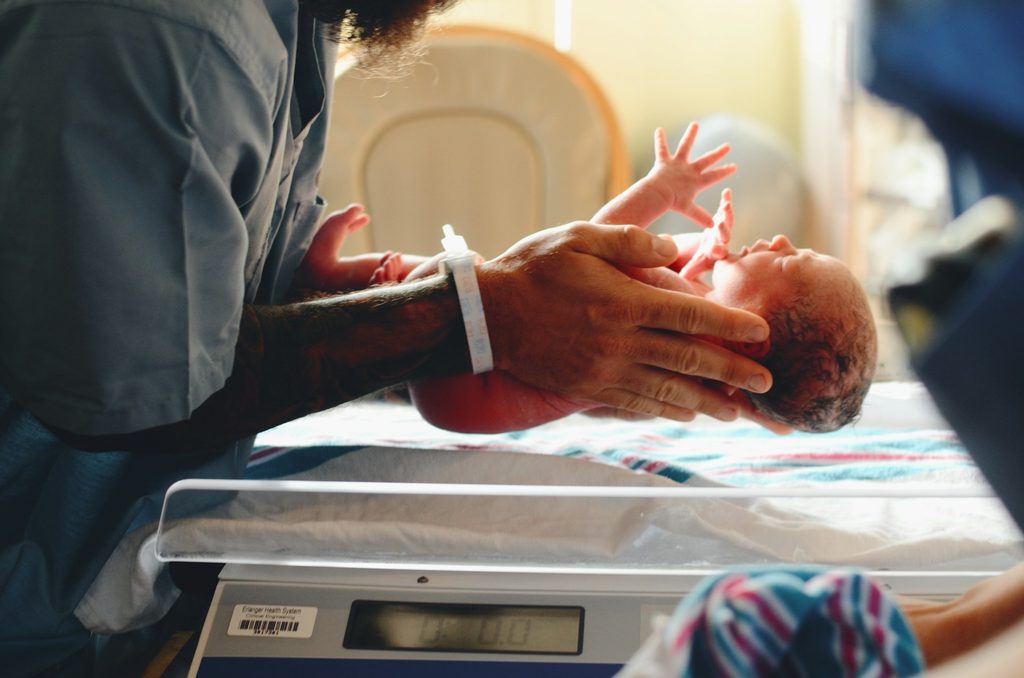
The hospital will have everything you need for your baby during your stay, including diapers, wipes, blankets, and gowns. You’ll want to have a few special things for your little one for their trip home.
- Going home outfit and hat (you may want to pack two options in different sizes)
- Blanket
- Receiving blankets or burp cloths for quick clean-ups on the way home
- Car seat
- Pediatrician information
- Bottles (if you’re not planning to breastfeed)
- Any namesake/family heirloom item you want to see them born with
What to pack for any labor and delivery support people
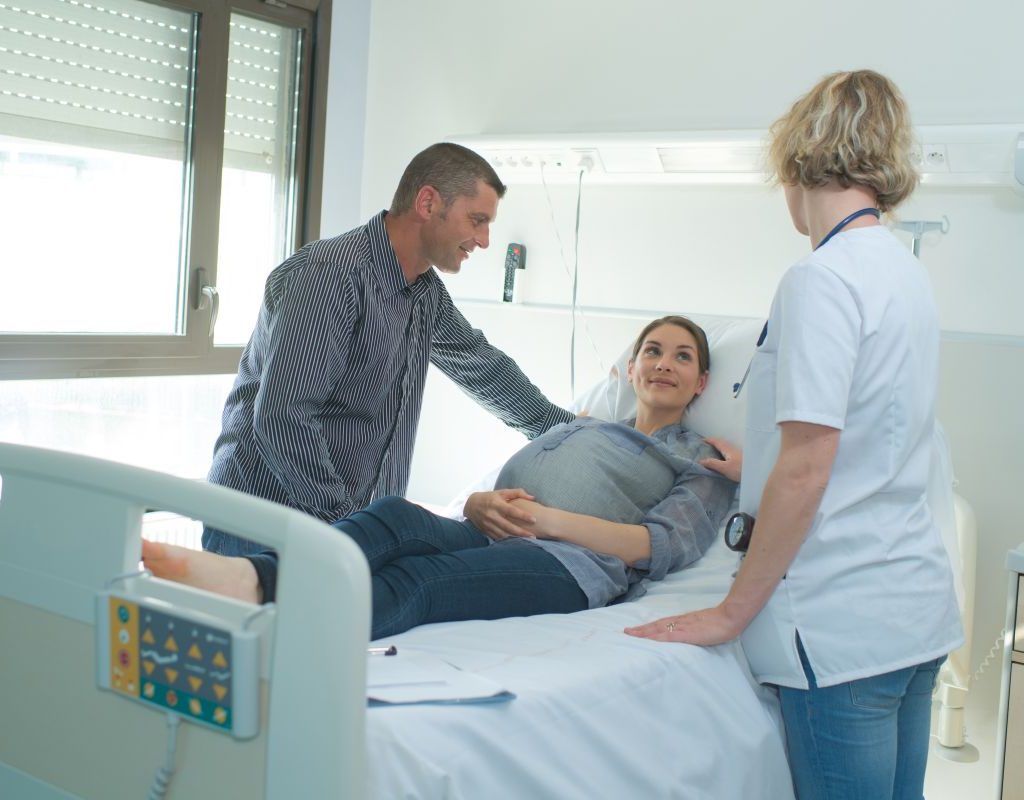
Although mom and baby are the priority when packing for a hospital stay, your partner or labor support person may need a few supplies. Packing a few snacks (like granola bars and water) would come in handy, especially if you labor overnight or longer. Cafeterias will be closed at night and having something quick to grab will help your partner stay energized without having to leave your side.
They should have a change of clothes and a small bag of personal toiletry items to freshen up with, especially if they don’t want to leave the hospital. Your partner may want to download a few episodes of a favorite show, bring a book, or have some games handy to pass away those long hours in the hospital.
Make sure everyone has their bag
Have one bag with your essentials, one for the baby, and one for any extras to help you easily access what you need during your stay. For new mothers who give birth without any complications, the typical time is between one and two days, so there’s no need to pack for an extended stay. Should you require a lengthier visit, have a backup bag at home ready for someone to bring to you.
Try not to overpack
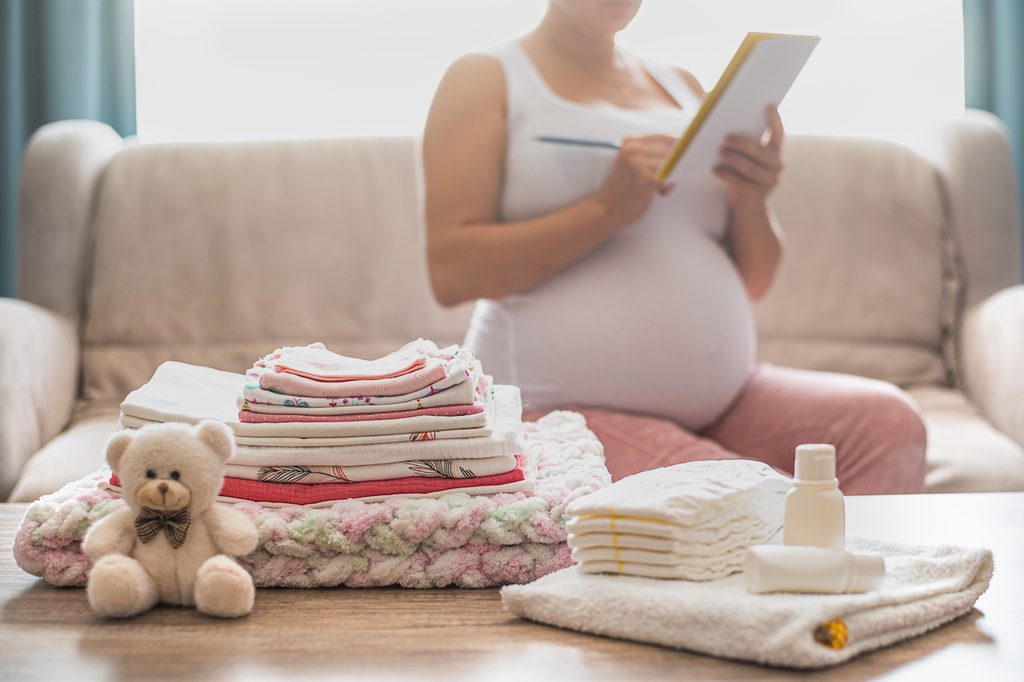
Now is not the time to overpack, as most people leave the hospital with more than what they arrived with. Between gifts for the baby, hospital supplies, and the paperwork that comes with having a newborn, you will have your hands full when leaving the hospital.
Don’t bring these things
- All of your electronics
- Too many outfits for you or baby
- Anything valuable/jewelry
- Too much food
You are going to be in labor, you won’t need your laptop, phone, or tablet. Leave the electronics at home and catch up on Law & Order on the hospital television. The same goes for clothes. You may not even have the strength to shower every day you are there, so no need to bring 17 outfit changes. You probably had to ditch wearing jewelry after your second trimester, but leave valuables at home.
Depending on the type of labor you have, you may not even be allowed to eat anything more than ice chips, so don’t worry about bringing leftovers from home. Plus, moms get meals during the hospital stay, so you shouldn’t have to bring more than light snacks.
Help take some stress out of having a baby by having everything you need packed and ready to go at least a few weeks before your due date. These items are just a guideline to help you decide what you want to pack in your own bag. Everyone’s needs are different, and the most important thing is that you’ve planned properly and are ready to go before your baby arrives.



